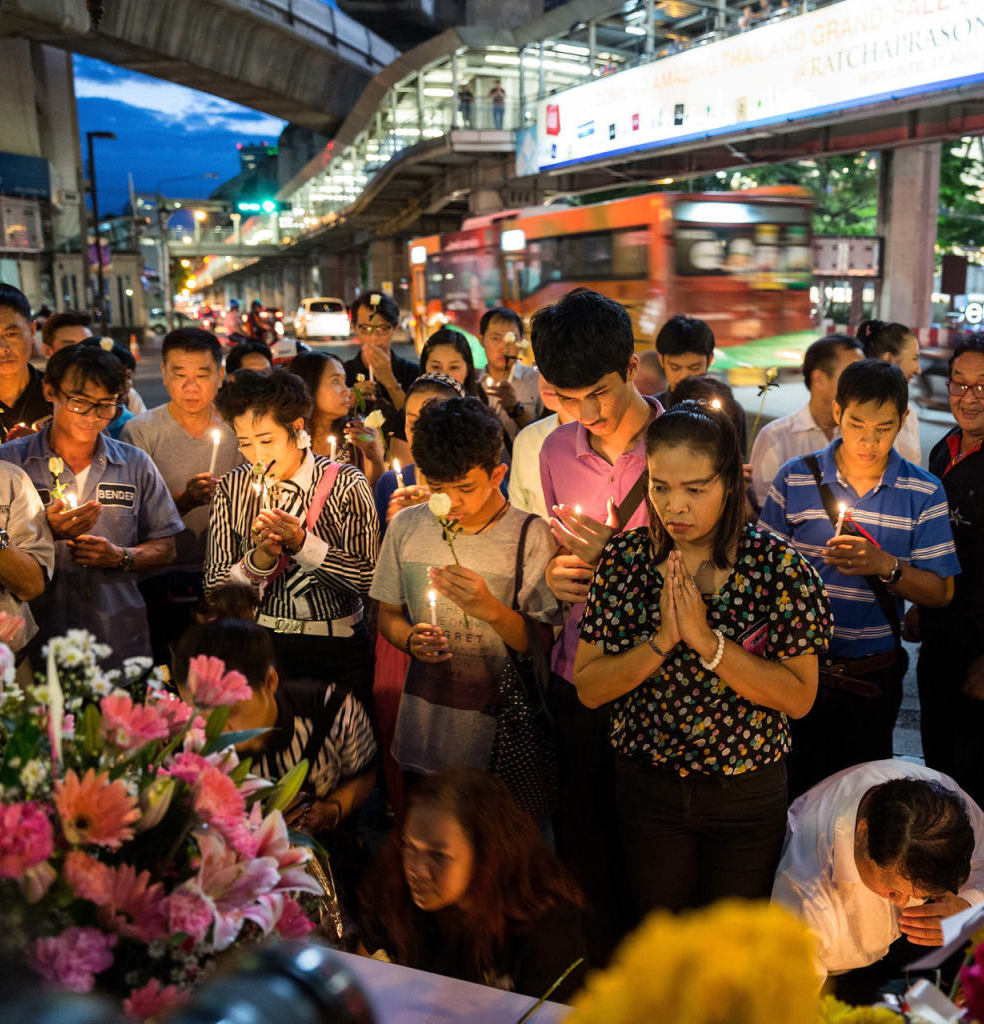Bombing the latest of many challenges for Thailand’s junta
When a military coup last year ended months of political turmoil and violence in Thailand, even some democracy advocates welcomed the junta’s promise to restore stability and return “happiness to the people." But 15 months later, a deadly bomb that ripped through a venerated shrine in downtown Bangkok highlights a critical question: Are the generals losing their grip on troubles blitzing them from all directions, in a land that once seemed endowed with a magic touch? Prime Minister Prayuth Chan-ocha, the former army chief who engineered the May 2014 coup, has said he had to take over the government to end protests and political clashes that left about 30 people dead. With the junta cracking down on dissent, most of the country had been relatively peaceful until the Aug. 17 bombing, which killed 20 people and injured scores of others. The prime minister has said he will step aside for a new elected government as soon as possible, but when that will happen, and the true strength of that future government, has grown increasingly murky.
I think the military is capable of fixing problems in the short run, but superficially because the use of force and fear is a painkiller. But like with a painkiller, the real problem is not understood, let alone solved.
Thongchai Winichakul, a Thai professor of Southeast Asian history at the University of Wisconsin
Thailand’s economy has been flagging under the junta, with disappointing figures for both foreign investment and domestic consumption. Tourism — which accounts for 9 percent of the economy — has been relatively resilient, but Monday’s bombing has already driven some visitors away. Prayuth replaced the country’s economic leadership in a Cabinet shakeup Thursday. On a continent earlier populated by military strongmen, Thailand remains the last country in Asia overtly ruled by the military. Uniformed or ex-military men have led Thailand for 55 of the 83 years since absolute monarchy was overthrown in 1932, with coups occurring almost as frequently as the monsoons. Critics of the junta doubt it will take up the sweeping reforms Thailand needs. Instead, the military is trying to tackle some of these problems by promoting "Thainess,” incorporating 12 core values that schoolchildren must recite daily, including respect for teachers, religion, nation and monarchy. Prayuth, however, stresses that Thailand needs a cooling-off period of reform and reconciliation before “Thai-democracy” can be instituted and political chaos avoided.
No single Thai administration is capable of solving the country’s most chronic and deeply embedded problems. For the past 50 years, we have swept so many problems under the carpet. The chickens are now coming home to roost.
Songkran Grachangnetara, a businessman and analyst

World Bangkok shrine